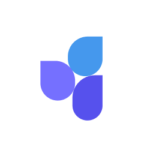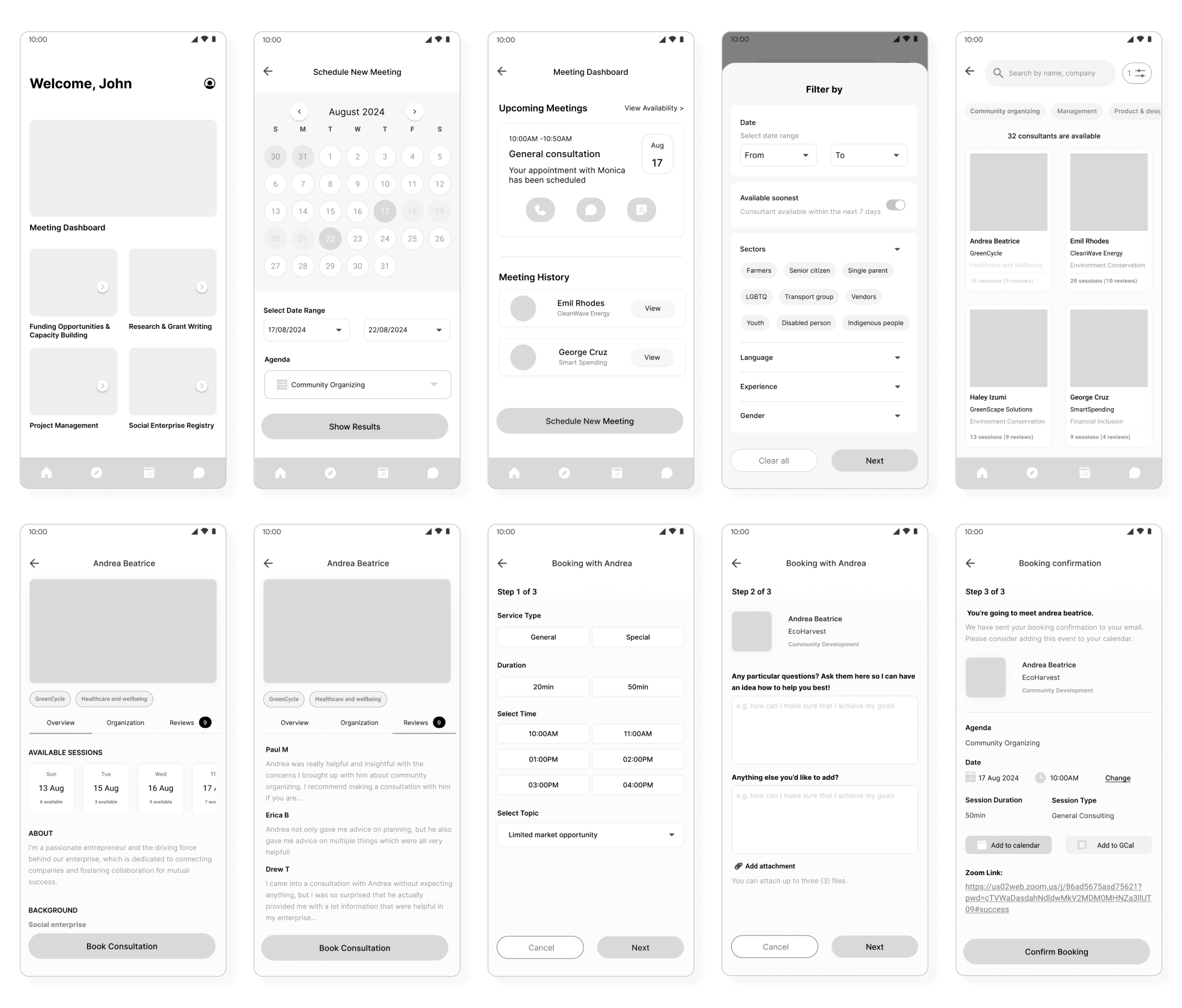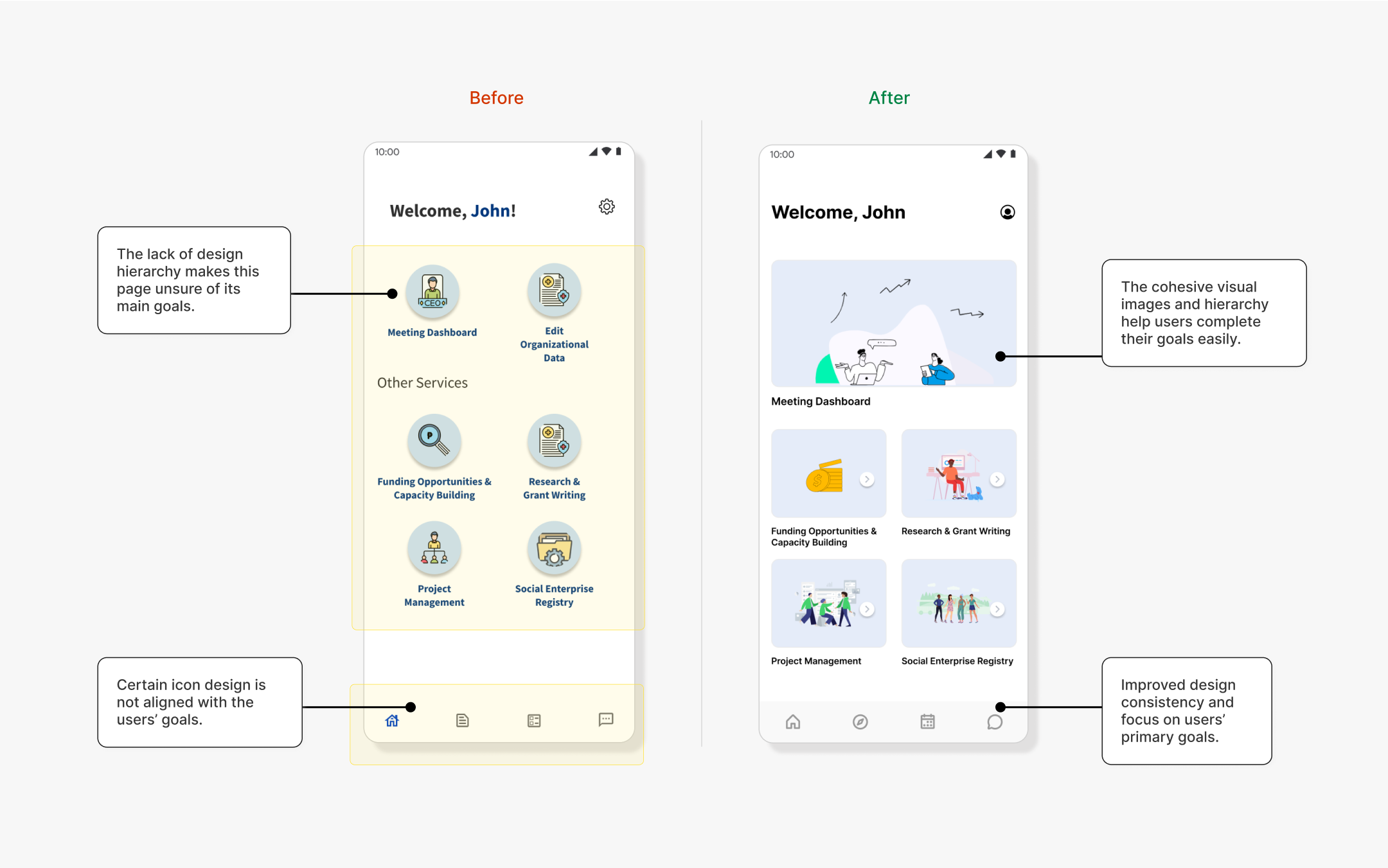Transforming Business Consultancy Through Mobile Accessibility
A mobile solution with UX design approaches for empowering business growth and fostering networks in the Philippines.

Roles
Product designer
Tools Used
Figma
Figjam
Canva
Mural
Notion
Slack
Google meet
Google Drive
Time line
3 months
Client
Social Economy Action Research Foundation Inc. the Philippines
Overview
Social Economy Action Research Foundation Inc. in the Philippines believes in action research that seeks to empower and mobilize grassroots communities, social enterprises, and inclusive businesses as active players in the larger social economy. This project was initiated to promote and improve the social enterprise model, capacity building, transparency, and sustainability practices for the 40 community-based enterprises in the Philippines.
Key features
Scheduling
Personalize your business meeting appointment through seamless scheduling features.
This feature helps aspiring entrepreneurs and consultants
to connect easily for their business meetings through filters and profiles.
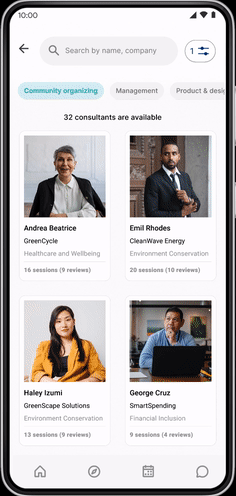
Calendar
Simplify the meeting process through an intuitive calendar.
This feature helps both users check the meeting availability, date, and agendas efficiently.

Video call
Enhance your work productivity through an accessible video call feature.
This feature allows users to share information, take notes, and upload images during meetings to make meetings more productive.
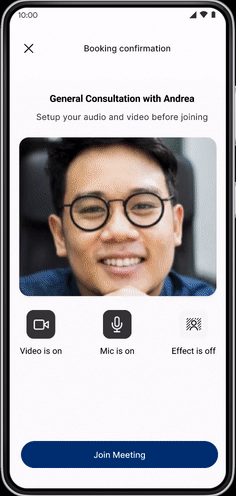
Background
How might we create an accessible consultancy platform that helps community-based organizations in developing countries thrive and succeed?
Context
Paul Media, SEARF Manager, observed that small businesses in the Philippines struggled due to the lack of technology-driven tools that could help people achieve their business goals more efficiently. With that in mind, Paul decided to collaborate with a non-profit organization, ‘Develop for Good’ to develop or design a conceptual MVP of the Social Enterprise Management System software platform for social entrepreneurs or community-based social enterprises in the Philippines.
Problems
Early-stage entrepreneurs in the Philippines struggle to find quality feedback and evaluations for their business
Early-stage entrepreneurs in the Philippines struggle to find quality feedback and evaluations of their business due to the lack of information and guidance to improve their business. This problem not only hinders business success but also discourages organizations from moving forward toward their vision. In order to increase business success and foster closer relationships between entrepreneurs and industry professionals, it is important to provide a technology-enabled platform that allows both users to succeed.
Project goals
To bring a positive social impact that enhances community-based organizations in developing countries to thrive and succeed in their business operation through an accessible consultancy platform.
Solutions
Crafting an MVP mobile solution that provides an accessible business consultancy communication tool to enhance users’ mutual business success.
Mobile first: Adopt the mobile-first approach to provide an easy-to-access user experience.
Provide consultancy platform: Create a space that encourages users to fulfill their business objectives through a consultancy platform.
Build connections & partnership opportunities: Providing a supportive and reliable business communication tool where users can be connected and coordinated for their business success together.
Research
Based on the research results given by the client (interviews & surveys were conducted in an object of early-stage business owners & community-based enterprises in the Philippines) & industry research,
90% of early-stage social enterprises in Philippine fail to thrive, grow, and succeed in their mission.
A study by the International Labour Organization (ILO) found that over 75% of small business failures in developing countries are due to a lack of managerial skills.
According to the OECD, businesses in developing countries are 50% less likely to have access to mentorship, training, or support services than those in advanced economies.
Understanding users
Discovering target users' motivations and painpoints
Based on the weekly meeting with the client and additional resources given by them, the team has identified two target users.
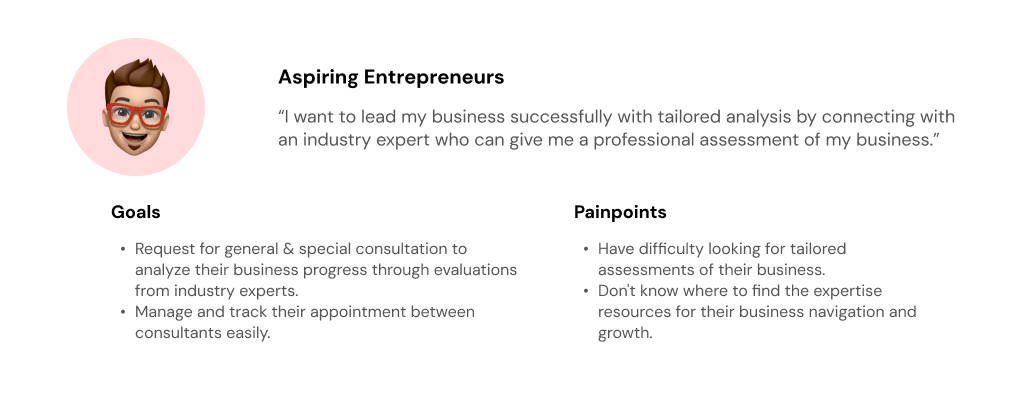
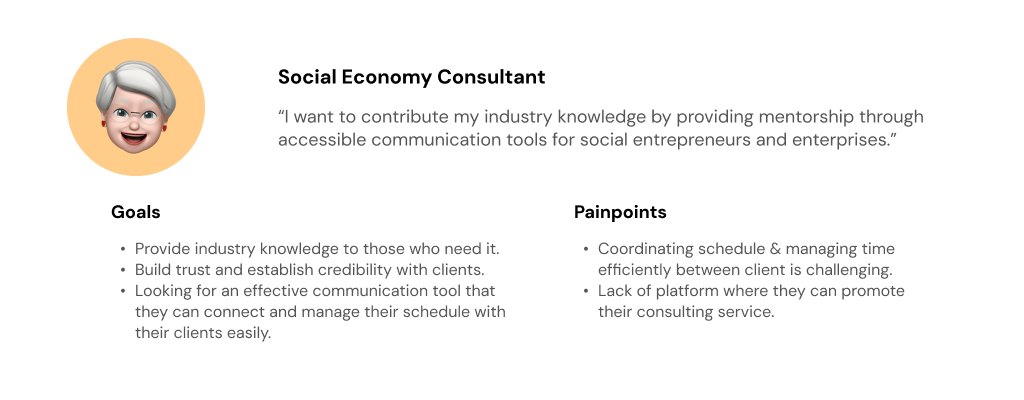
Competitive analysis
Discovering target users' motivations and painpoints
For competitive analysis, the team focused on researching on meeting scheduling (Calendly, ADP List, etc.), video conferencing (Zoom, Google Meet, Microsoft Teams, etc.), and payment (Venmo, PayPal, GCash, Maya, etc.) platforms as these are the main features that the mobile app contains. For each platform, I analyzed their pros and cons as well as how I can apply their certain features to our designs.
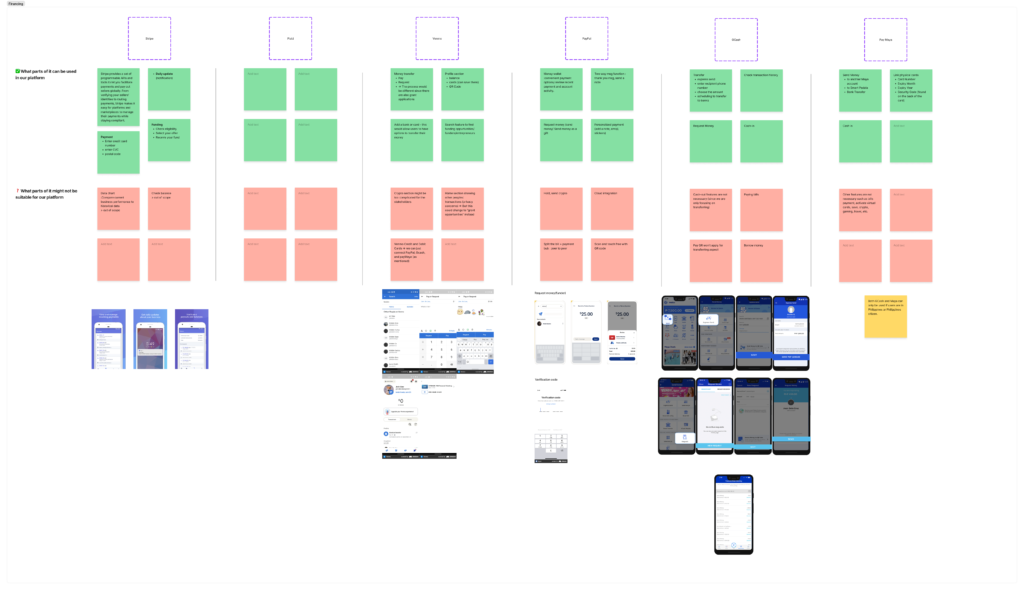

Research key findings
After understanding both users’ and our client’s needs and goals, the team narrowed down three key factors that led early-stage entrepreneurs in the Philippines to have difficulty accelerating their vision and mission for their enterprises. Considering this,we moved on to ideating the mobile design.
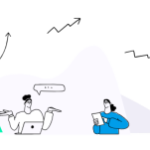
The limited access to expertise resources
Target users want to find quality guidance and information for their business growth but it is hard to find the opportunity due to the lack of information.
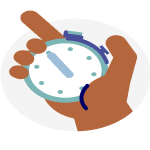
Time-consuming
Identifying and linking with the suitable consulting process for the social enterprises is time-intensive.

Absence of a platform for business networking
The lack of a platform facilitating effective networking for business growth for underprivileged community organizations in the Philippines leads target users to struggle to achieve their visions on time.
Ideate
User flow
To build out the skeleton of the mobile app, our team then proceeded to create user flows that map out how a user will navigate and be directed in the app to complete their goals.
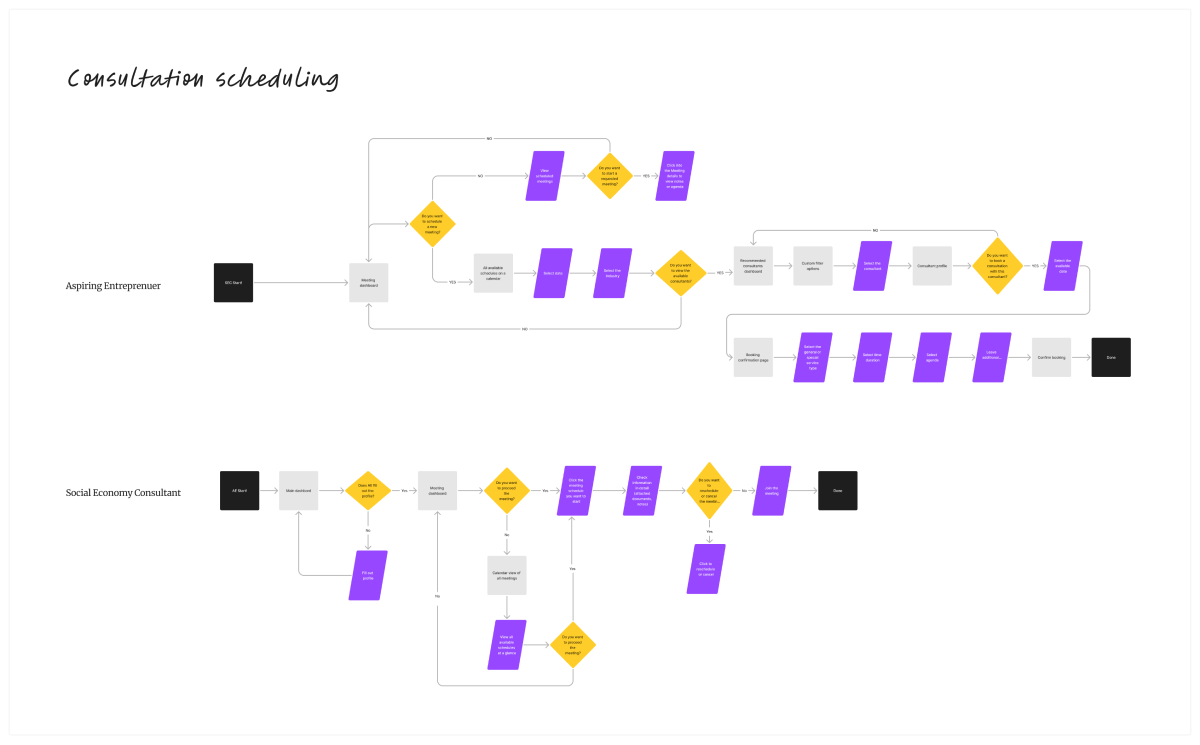

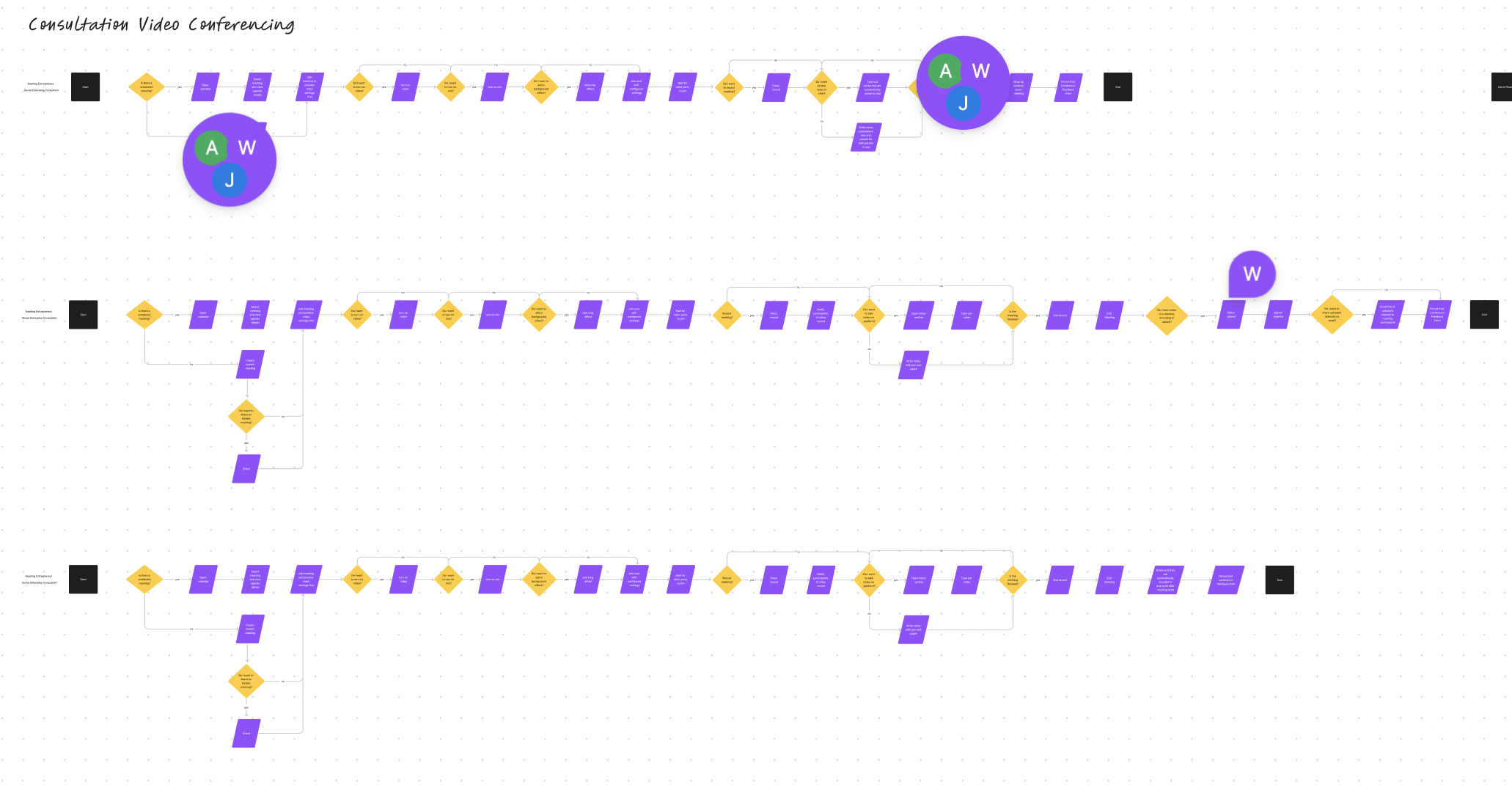
Design
Wireframe
The team split into three groups to design ‘Scheduling’, ‘Payments’, and ‘Video Calls’. This design process helped me learn how to collaborate with others, from coordinating plans to efficiently communicating ideas through Slack.
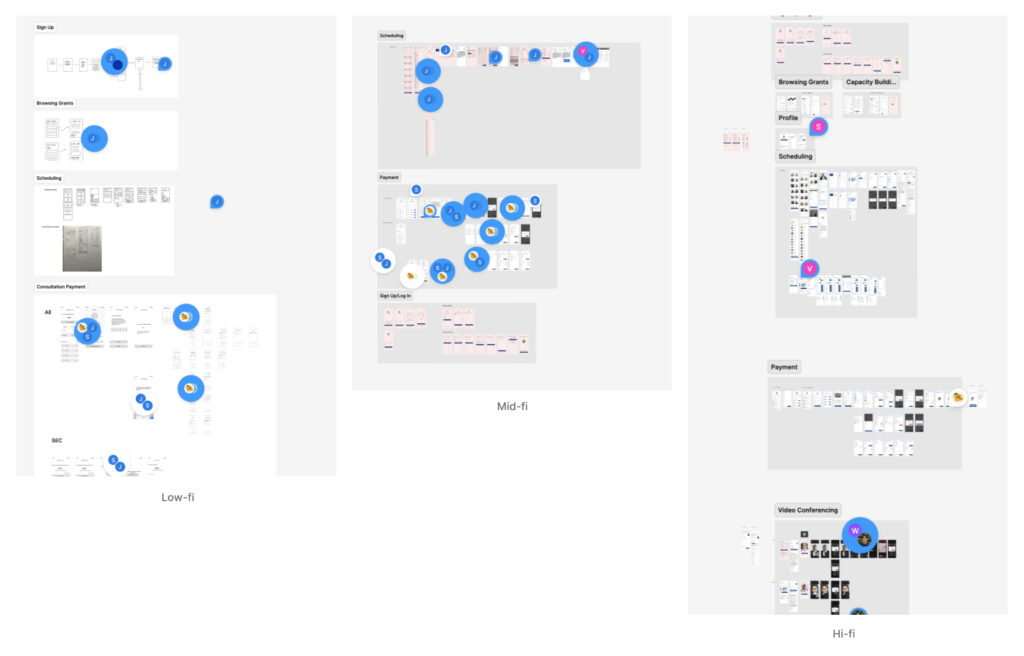
Iterations
Before & after
1.Main dashboard
The newly designed dashboard improved visual hierarchy and ensured design consistency by prioritizing users’ goals and needs.
2.Meeting dashboard
The previous dashboard lacked a mobile-first approach, leading to potential user confusion. The redesigned meeting dashboard enhances mobile usability and simplifies navigation for a more user-friendly experience.
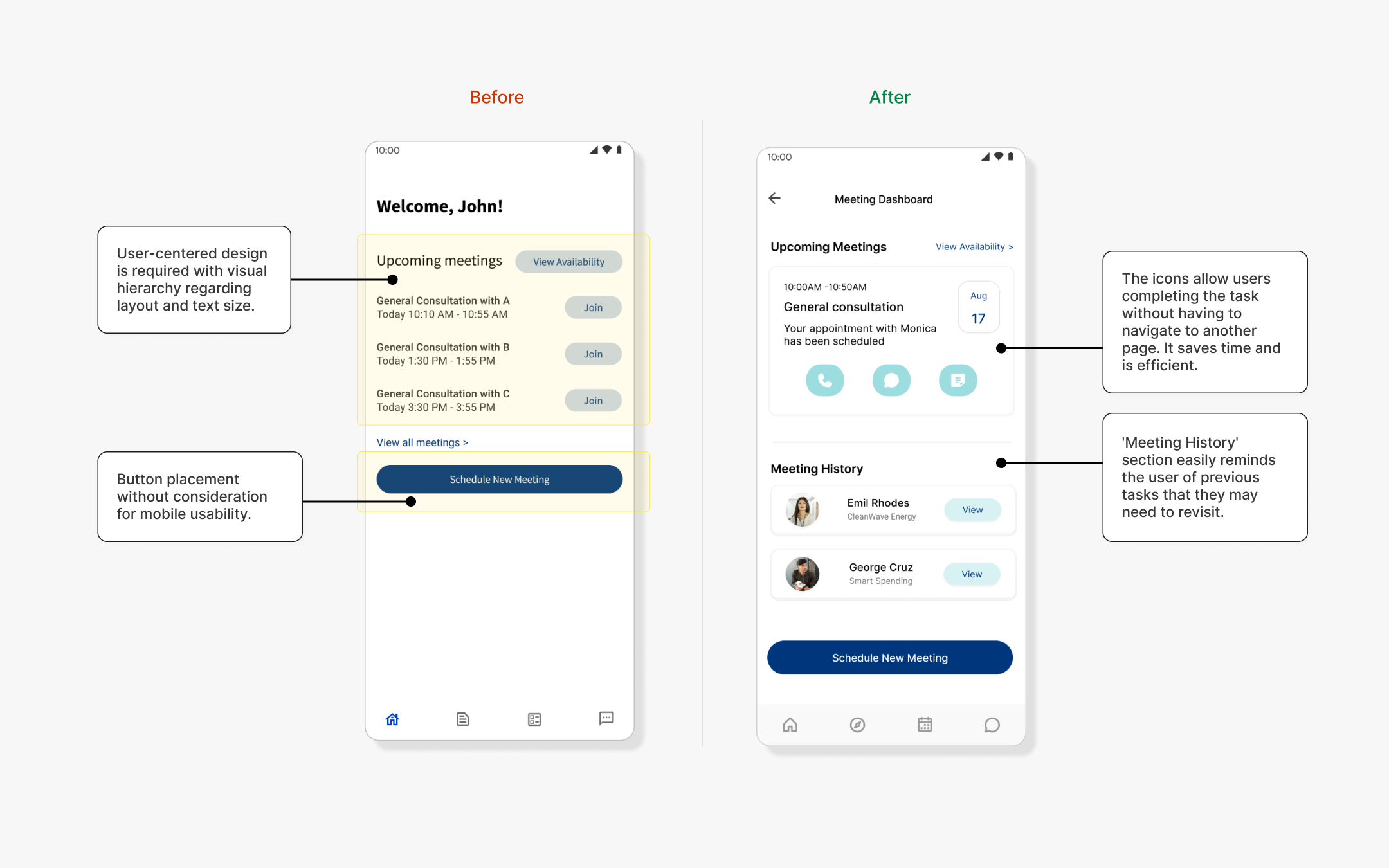
3.Calendar
The updated calendar design helps users achieve their goals more efficiently through a clean, simple, and intuitive presentation.
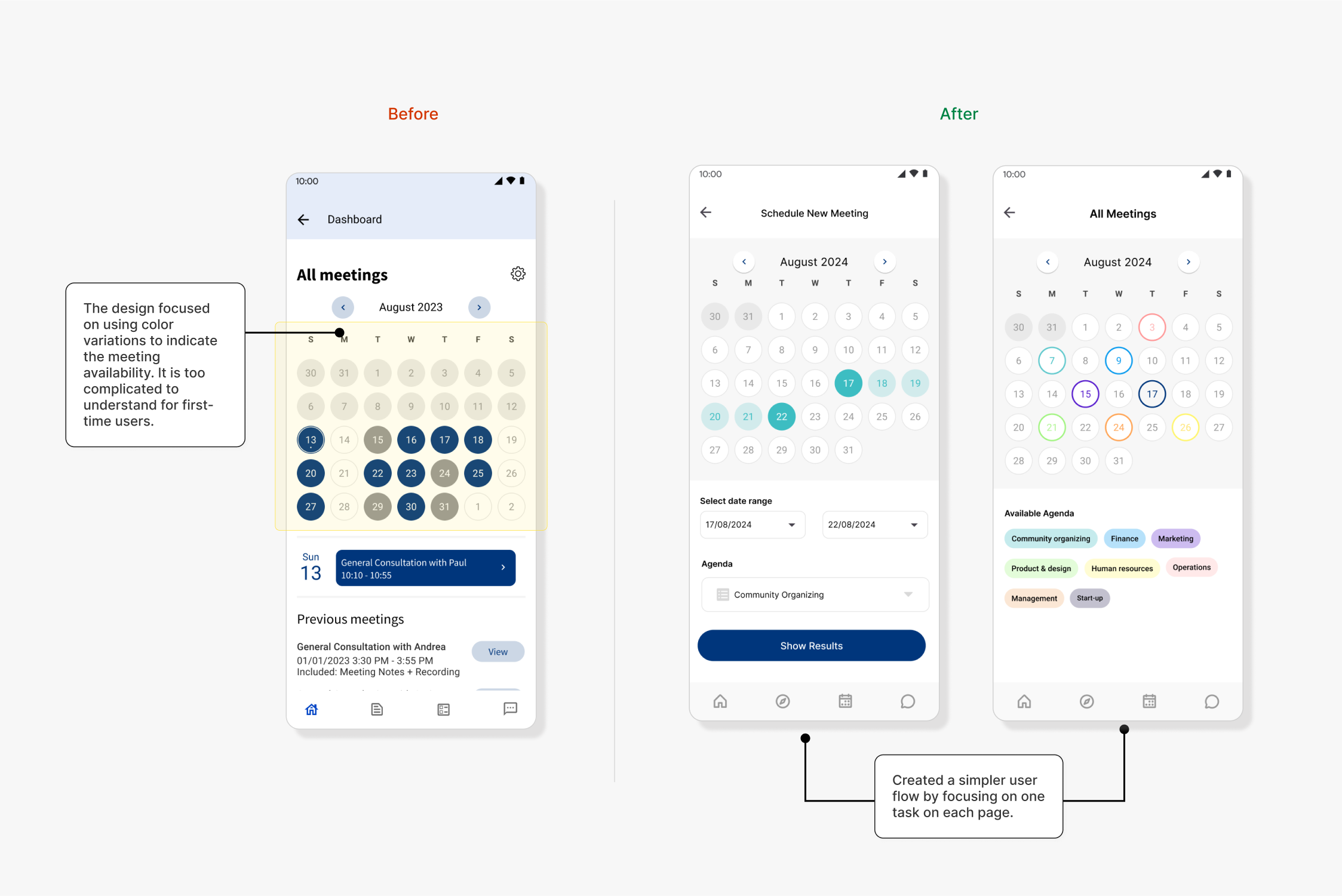
Results & impact
Impact
While this project was not able to circulate the testing in an object of users in the Philippines due to time constraints, the team remains confident that it will positively impact fostering business growth for community-based groups locally by offering sustainable business communication tools.

Empower the organizations to get off the ground.
This project would give a chance to the early stage business owners and organizations to start their business and move forward with their visions by leveraging the use of technology
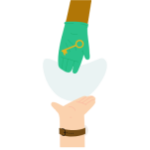
Grow networking and partnership opportunities
It facilitates networking and collaboration opportunities by providing an interconnected business environment in the Philippines.
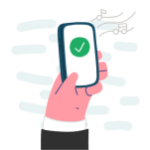
Create a reliable consultancy platform
As this product serves the identified industry experts’ information with their profile and specialty, it prevents users from being afraid of getting scam
Key performance indicator
Measurable result (e.g. Number of donations submitted through the website, number of users)
- Community-based enterprises actively use SEMS features, such as collaboration, resource sharing, impact measurement, marketplace, training, and networking, to promote engagement and participation.
- Community-based enterprises demonstrate positive social, environmental, and economic impacts through SEMS, such as improved collaboration, resource management, market access, skills and capacity, and community connections.
Results & impact
Testimonials
Paul Medina, Program Manager of SEAR-Philippines
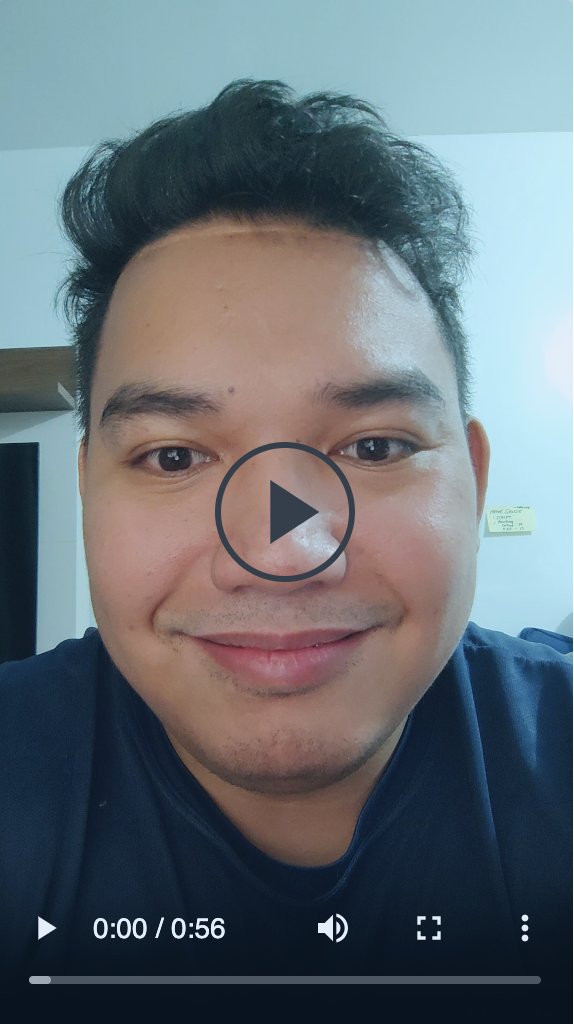
Next steps & Takeaways
What did I learn?
1. Learn how to improve work productivity in a team
I learned how to improve work productivity in a team.As our team worked in a pair with 3 groups, maintaining design consistency across the respective flows was one of the challenges. To meet the requirement for overall design consistency, conducting regular weekly team meetings through Slack and Zoom calls helped make sure we were on the same page. Also, I’ve learned how important it is for a design system to play a role in maintaining design consistency along with streamlining our process.
2. Foster the ability to adapt to the change
In the week of 10, we had a significant project pivot following the change in demand for the target users for our product. Given time constraints, we had to quickly adapt to the scope of work and readjust to our design work. However, this experience taught me that working with clients in the real world is about tackling unexpected situations and solving those problems under given constraints.
